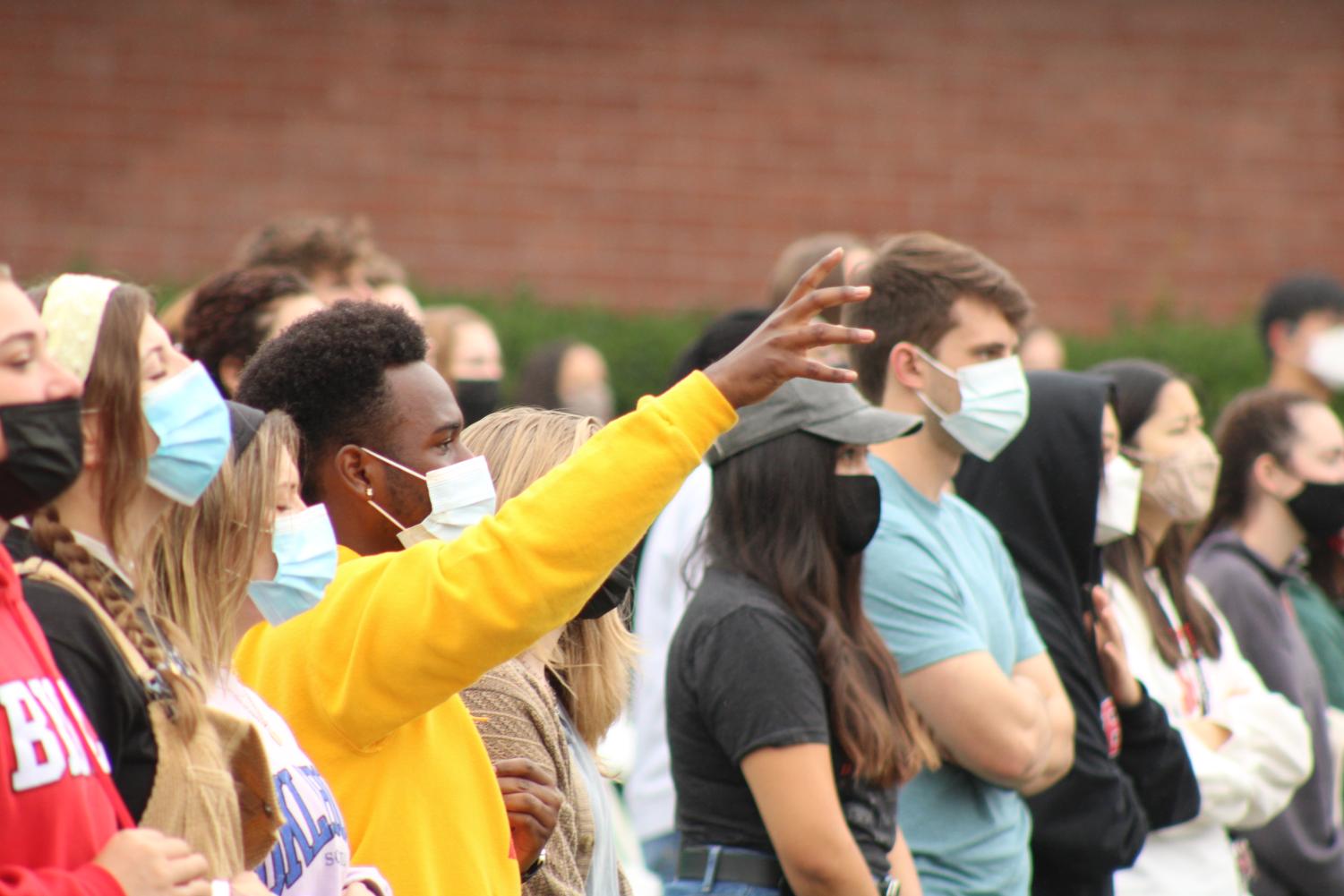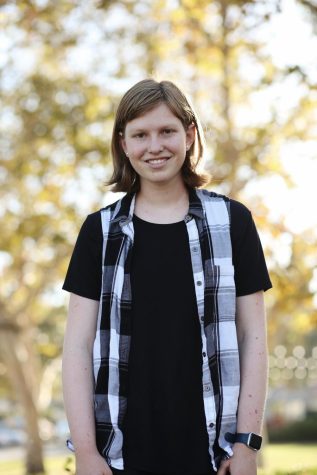Bells in the tower at the heart of campus continue to chime, calling Biolans to worship. However, instead of meeting in the parking lot, students will be congregating in Sutherland Auditorium starting Oct. 18. Although COVID-19 restrictions altered what chapel looks like, the purpose remains the same—to help students grow in faith and knowledge of Jesus.
On Sept. 27, chapels moved from Sutherland Auditorium and Calvary Chapel to Lot F, a switch that Biola administration made in efforts to lower the rate of COVID-19 transmission. While seeking to keep outdoor chapels as similar to indoor worship as possible, the chapel bands altered which instruments they used to keep the sound from interfering with classes.
Biola’s annual Torrey Conference was Oct. 6-8 with the theme of “Glory to Glory.” Students attended three sessions instead of five because of difficulties with holding sessions outdoors in the hot afternoons.
PURPOSE OF CHAPEL
With the stress of classes and the permeation of campus with biblical principles, questions arise as to why chapels and conferences are required for students to attend. Since students take units for a Bible minor or study Scripture in Torrey Honors College, going to chapel on top of this biblical immersion can seem unnecessary. However, Dean of Spiritual Development and campus pastor Todd Pickett explained that worshipping Jesus in community is essential for Biolans to thrive. As a result, Biola mandates 20 chapel sessions so that students can grow spiritually.
“We hope that most days students want to go to chapel, or if they don’t want to, they leave going, ‘I’m glad I went,’” Pickett said. “It would be weird if 4,000 Christians woke up at Biola each day and did other things together but didn’t worship together. There are requirements to help us attend on days when we don’t feel like it.”
FAITH AND IDENTITY
Not only are chapels designed to unite students together in worship, they are also intended to integrate faith and learning. By inviting faculty with expertise in various subjects to speak, Biola opens the door for students to learn about applying biblical concepts to their lives from a variety of angles, Pickett explained.
“I want to hear how a scientist teaches the Psalms and the cosmos and the majesty of God we see in creation,” Pickett said. “I want to hear a psychologist developing the mind of Christ and transformation. The disciplines, even outside theology, have much to offer us in terms of understanding how we live out the Scriptures.”
For those who struggle with viewing chapel attendance as a requirement, assistant director of chapel programs Noreen Muehlhoff suggested looking at these structured times of worship as integral to the identity of the Christian community.
“If you can come to chapel with an open heart and say, ‘Lord, you have me here today for a reason. What do you have for me?’” Muehlhoff said. “To allow the Holy Spirit access to use chapels to help them grow in their relationship with the Lord. Not something to check off, but an opportunity you have to engage with the Lord and see what God might have for you through chapels.”
CHURCH CONNECT
The importance of worshipping together as a student body does not replace the necessity of attending a nearby church, according to Pickett and Director of Student Led Ministries and Spiritual Formation Chad Miller. Pickett explained that Biola has always encouraged students to connect with local congregations.
The new Church Connect program is a simplified way of helping students get involved with local churches. This ministry is led by students who use social media to link students and churches to foster a lifestyle of local church attendance.
“The fundamental thing that happens at a church that is not happening here is robust, multiple generations interacting,” Miller said. “The biblical version of what a church is—Biola doesn’t match that. There’s a need, a huge need for people and for families to come care for our students because we can’t do it.”
















